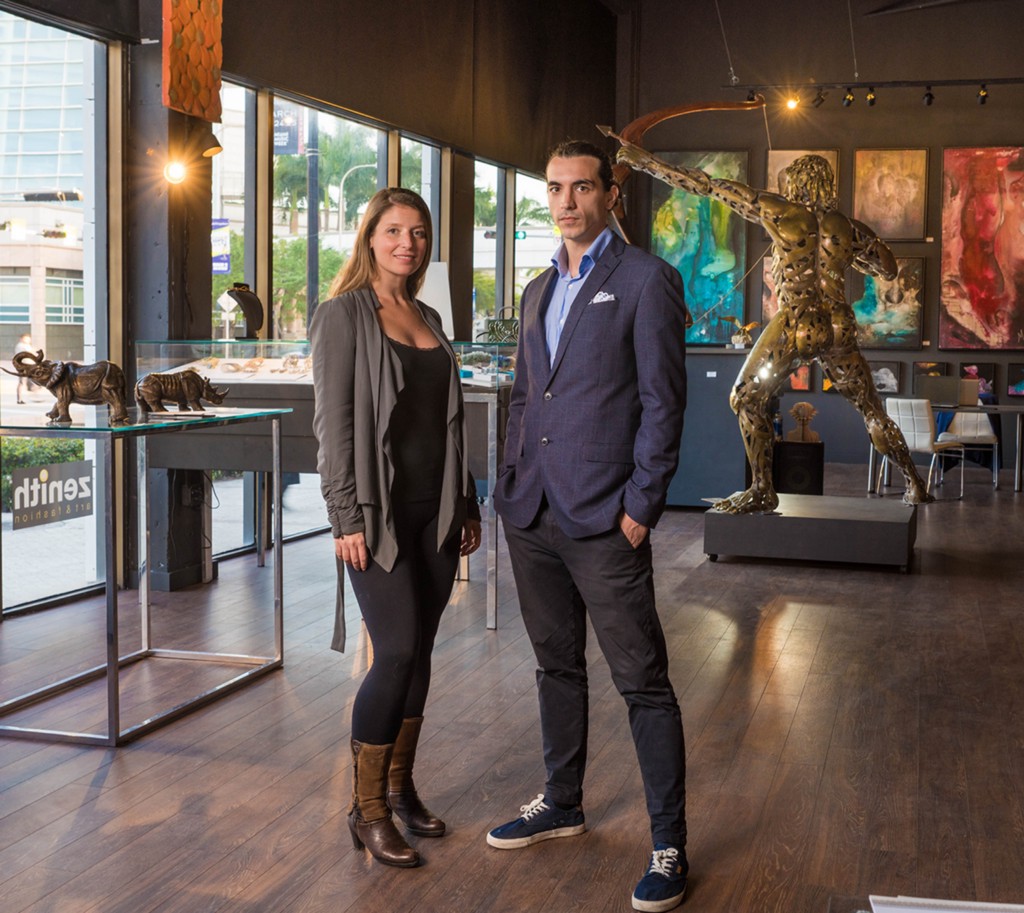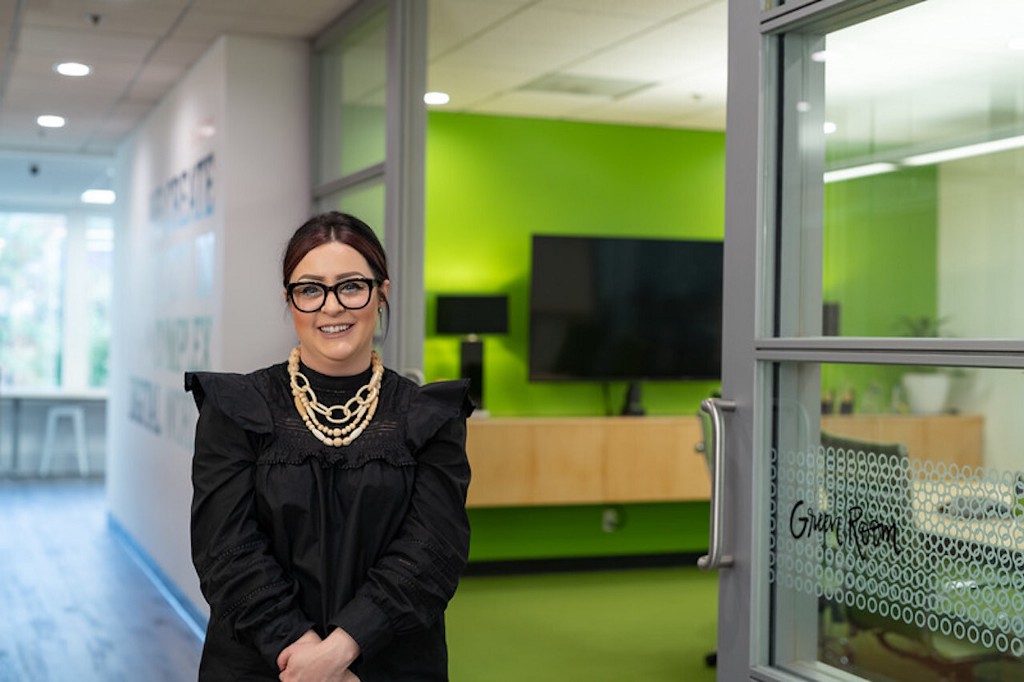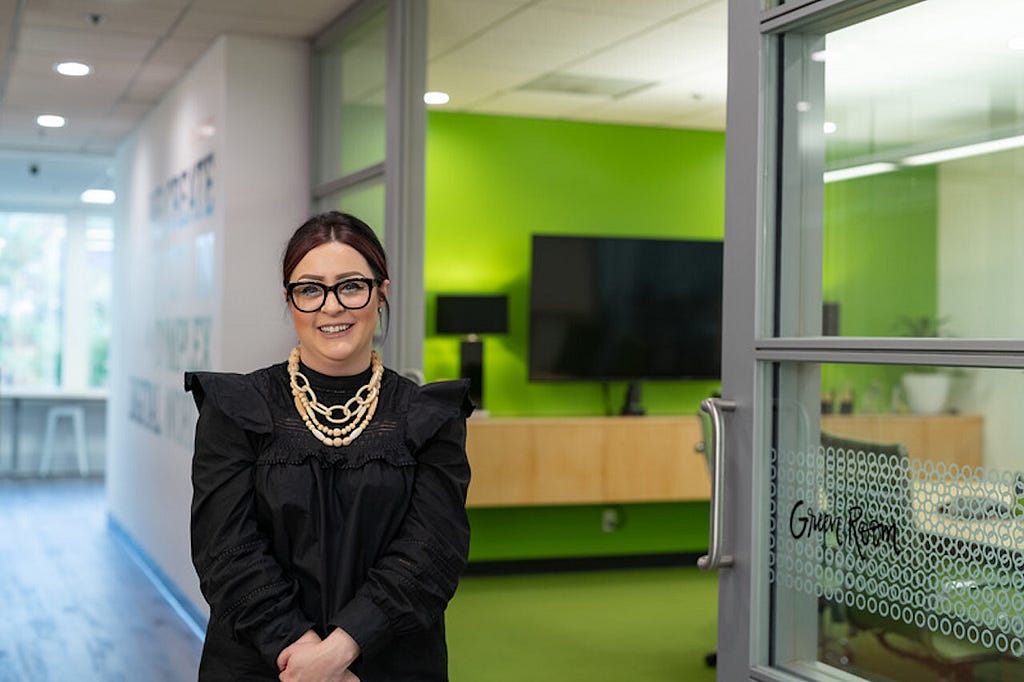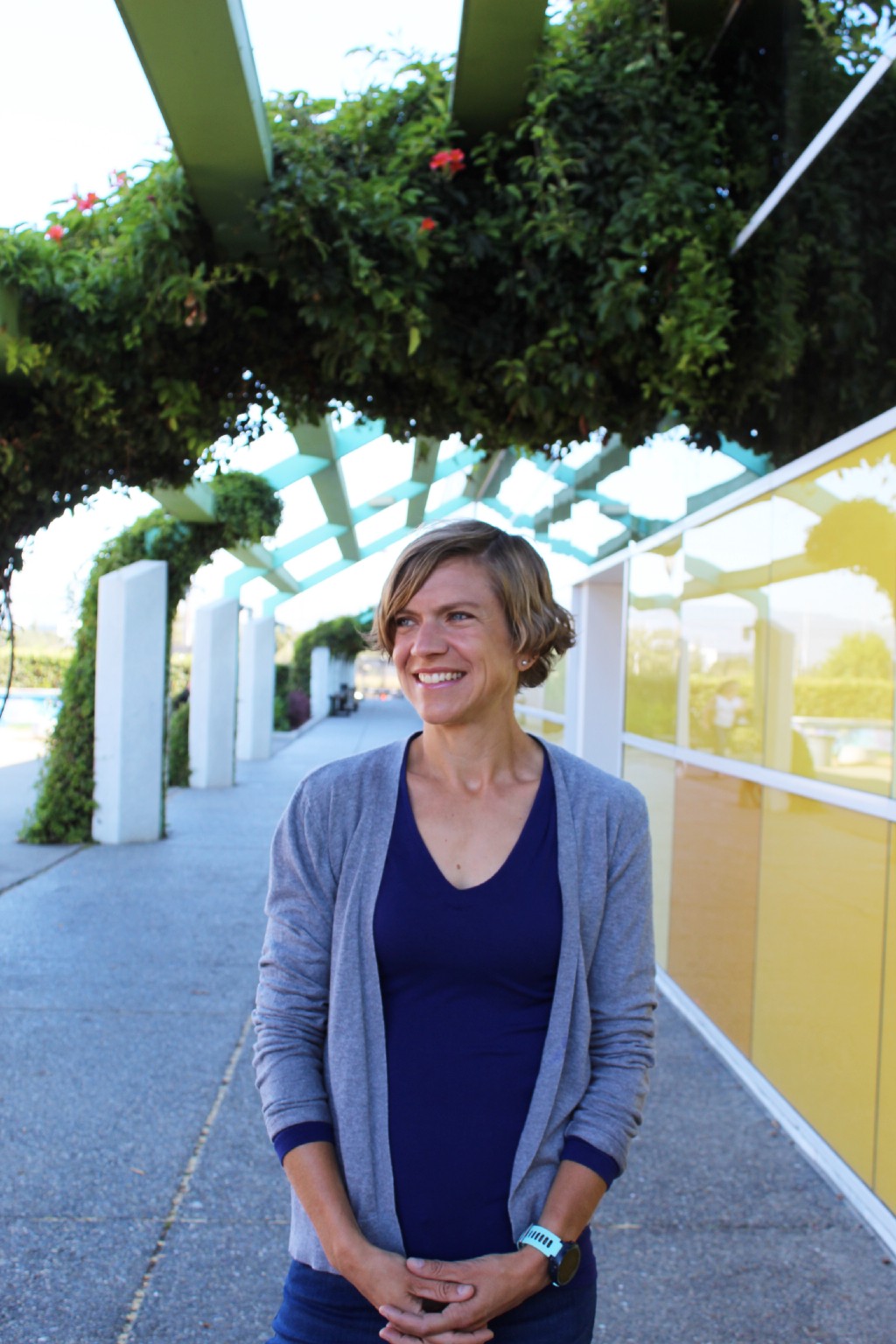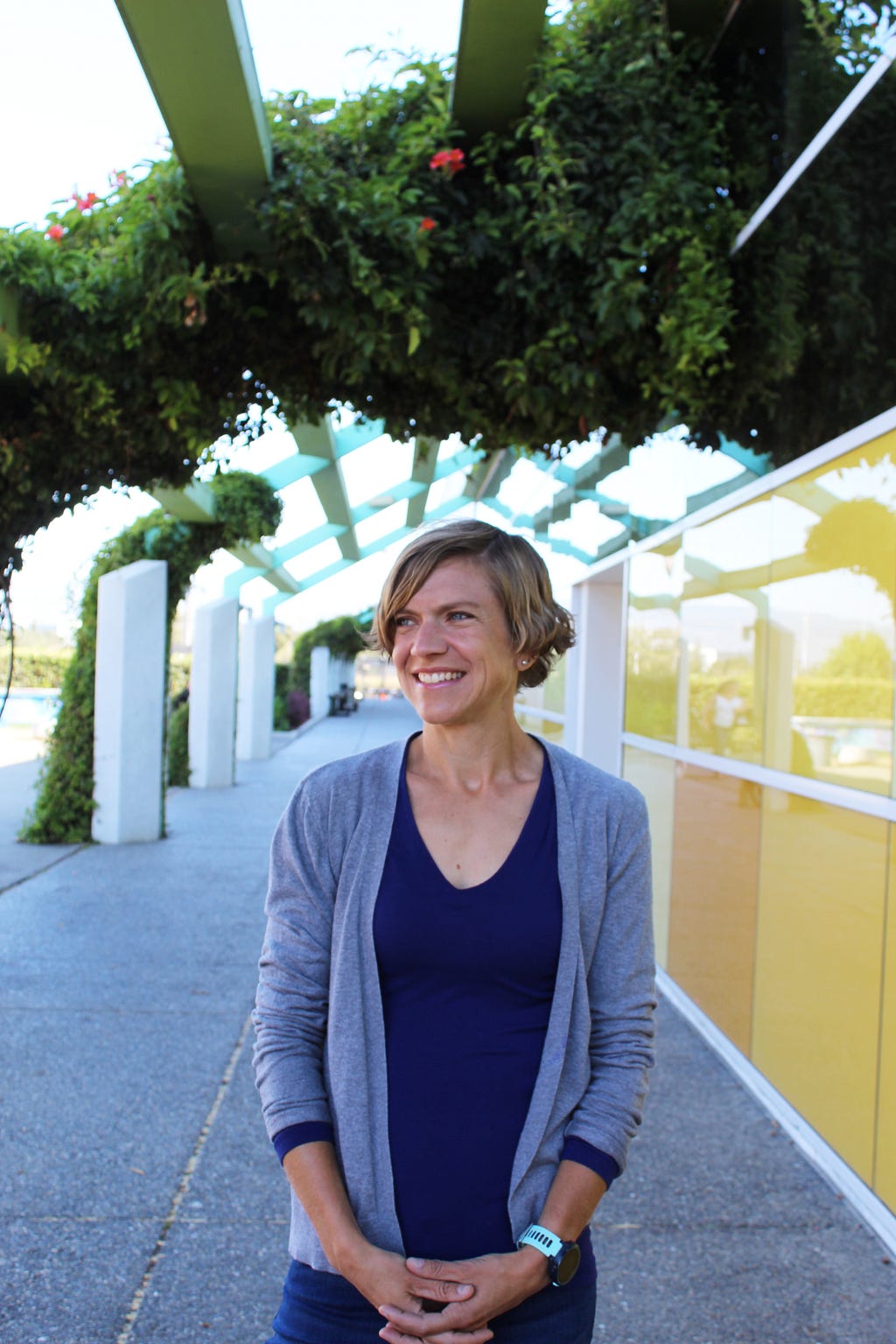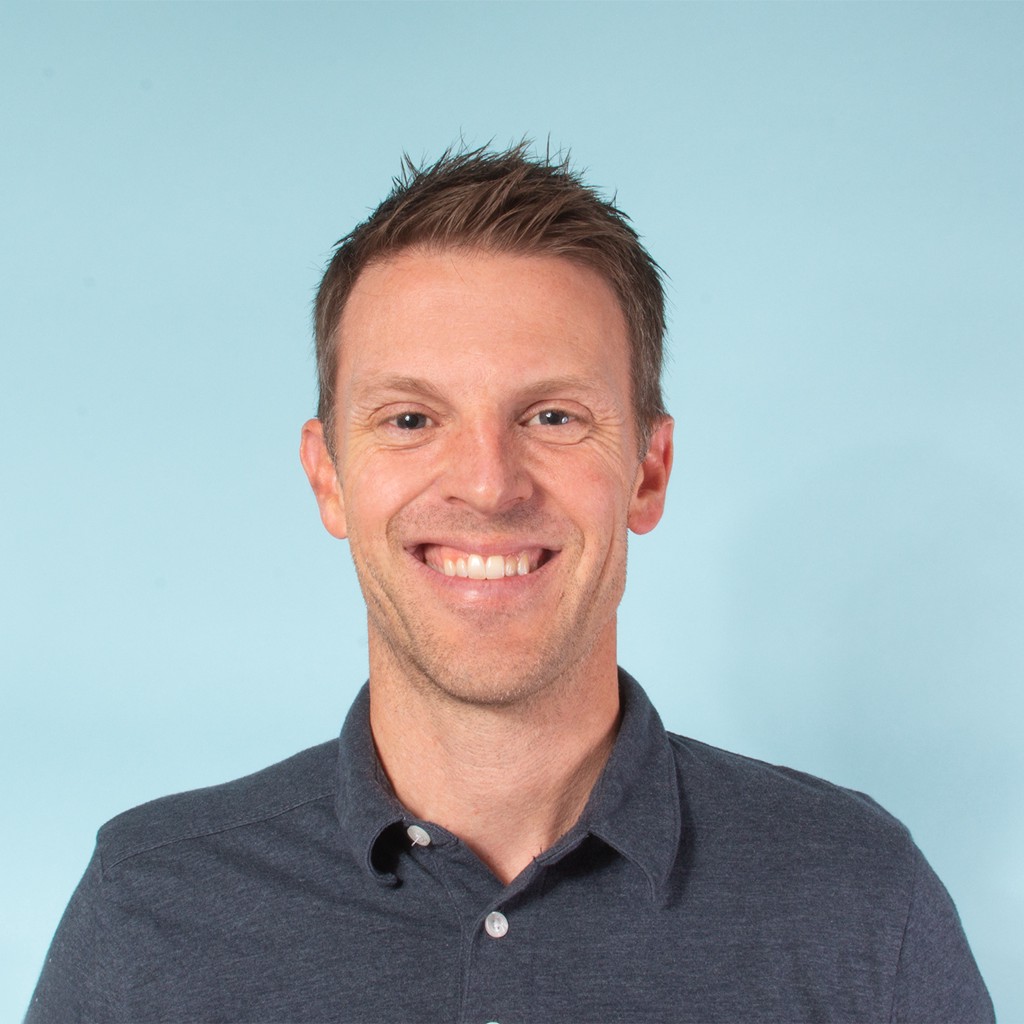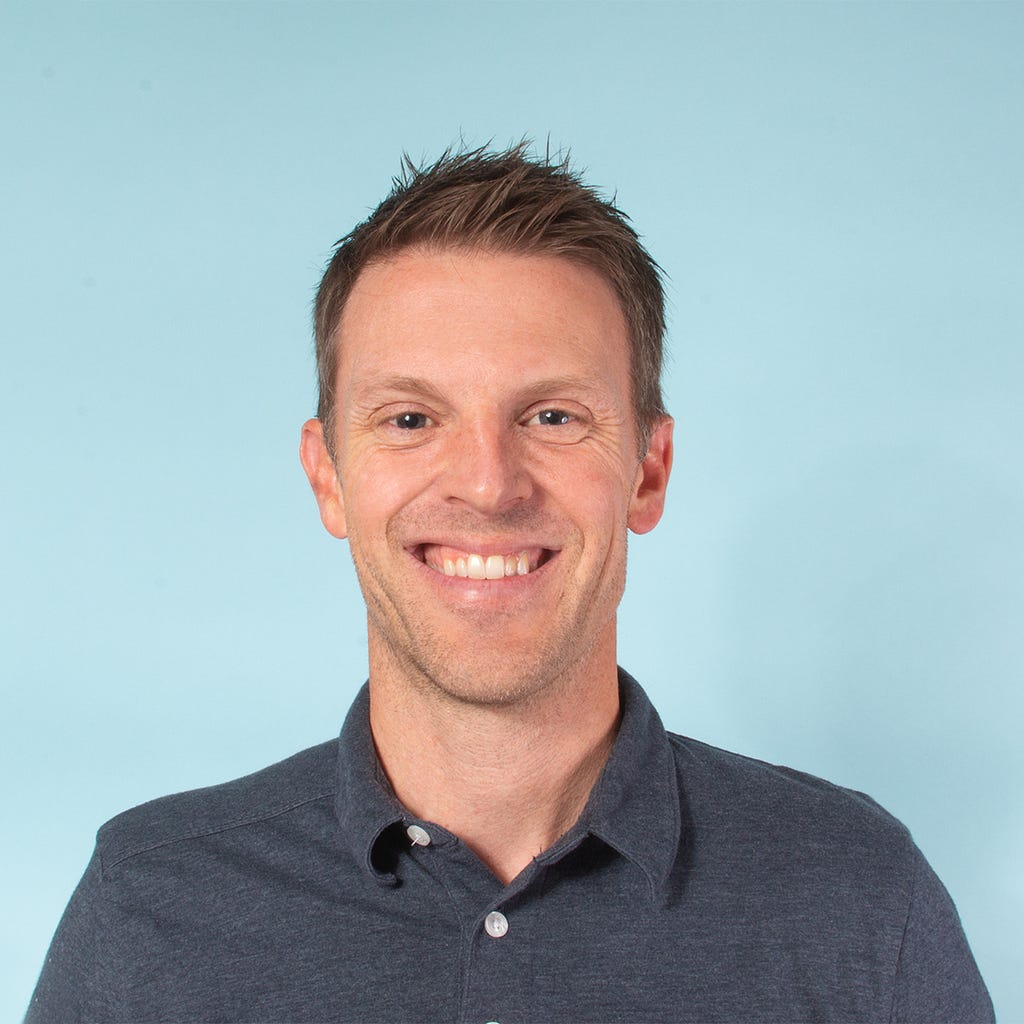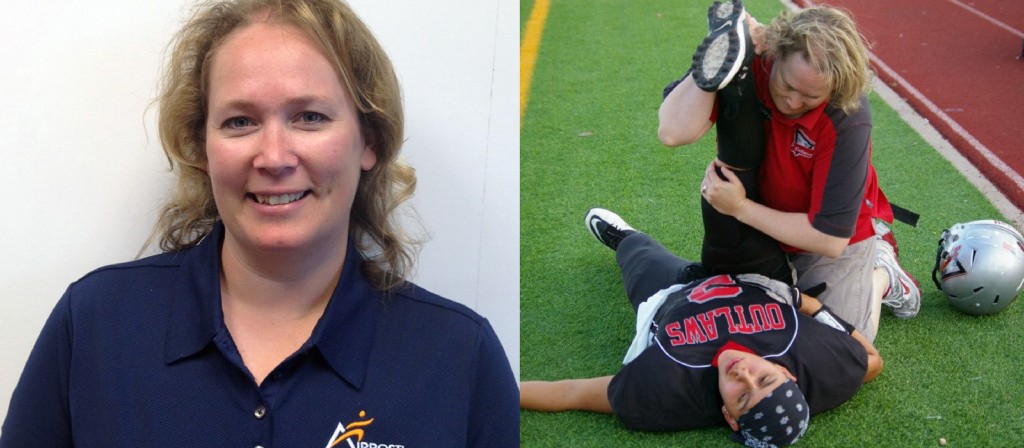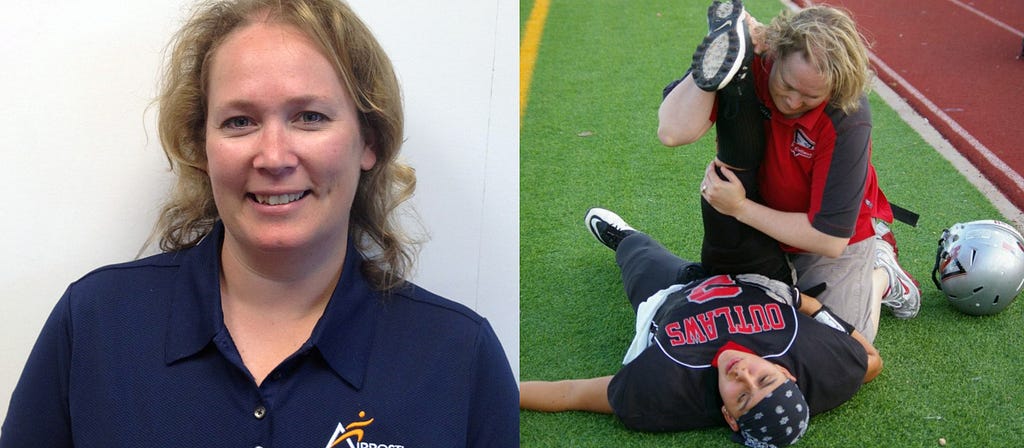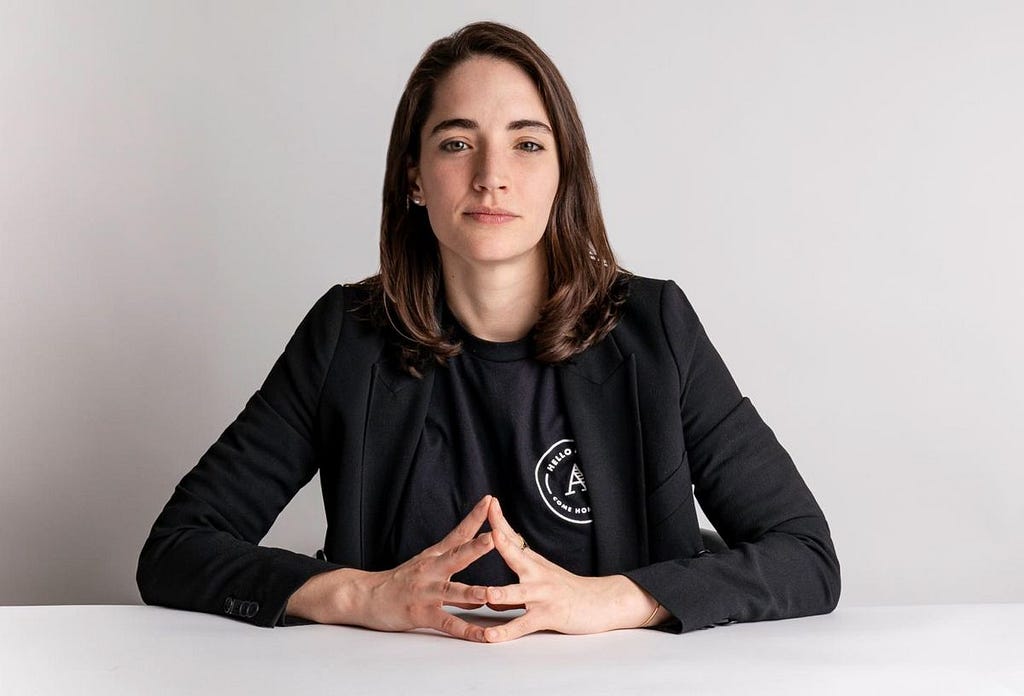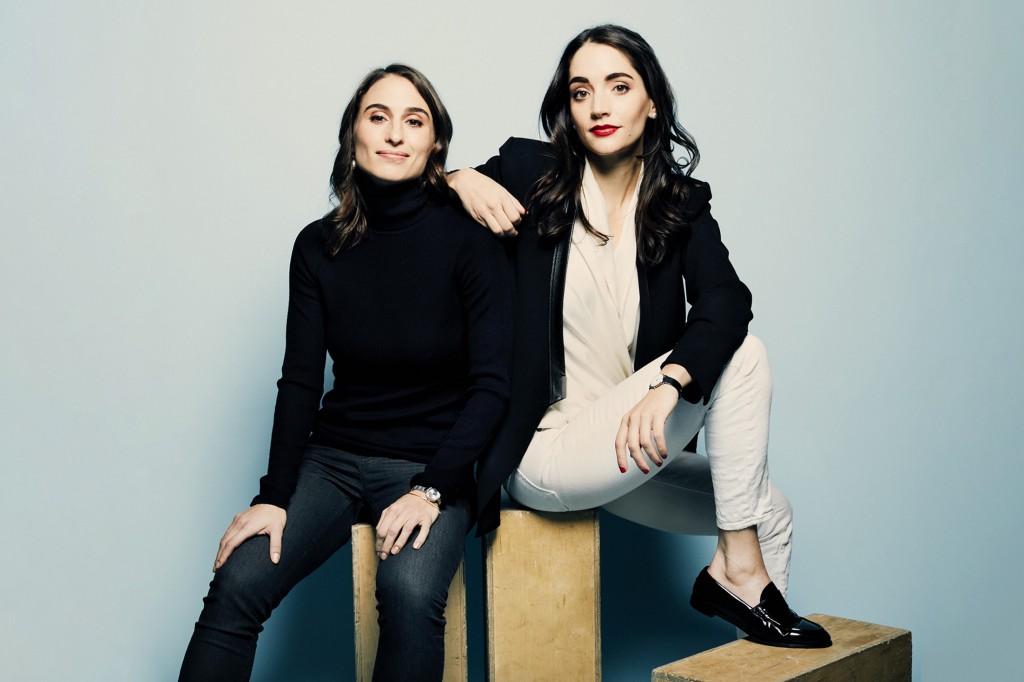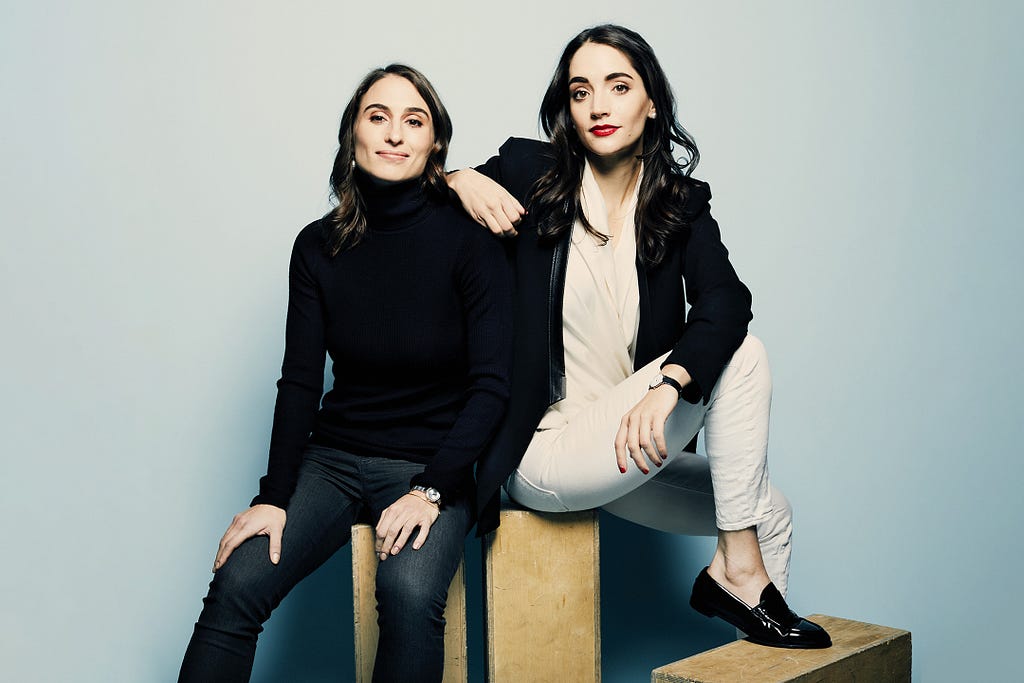Carla Cid de Diego & Jonathan Fakinos of Art & Hope: They Told Me It Was Impossible And I Did It Anyway
An Interview With Candice Georgiadis

Don’t go around saying “NO”, try to always turn the Negatives into Positives, and doors will open for you — Instead of saying, for example “I can’t do this or that because I don’t have the tools I need to do it” take a look at the tools you have around you and see what you can do with them. Always see the glass half full, and life will make sure you learn how to fill it up to the top.
As a part of our series about “dreamers who ignored the naysayers and did what others said was impossible”, I had the pleasure of interviewing Carla Cid de Diego & Jonathan Fakinos of Art & Hope.
About Art & Hope
Zenith Art & Fashion presents the new venture Art & Hope, which is a creative organization that partners with the Arts in order to bring Hope to people in need, producing unique special projects to raise funds for different humanitarian causes.
About Zenith Art & Fashion
Zenith Art & Fashion is a unique Art and Design platform, Luxury Marketing and PR Agency that Unites Cultures through the Fusion of the Arts, bringing together creations by Artists and Luxury Designers from all around the world. Founded in 2016 by two young artists and designers, Carla Cid de Diego & Jonathan Fakinos, with a history of merging the Arts, Zenith Art & Fashion was born from a desire to help create a more inclusive, Contemporary Art & Fashion world, offering exclusive experiences through the Arts. At Zenith Art & Fashion they also offer Art advisory & luxury consulting, giving clients exclusive access to unique & rare artworks from top emerging artists to artwork from grand masters & blue-chip artists. Through Art & Hope, Zenith Art & Fashion designs and produces creative projects to support major non- profit organizations and help different causes around the world and raise funds for those most in need.
Thank you so much for joining us! Our readers would love to ‘get to know you’ a bit better. Can you tell us your ‘backstory’?
I’m originally from Spain, I was born and raised in an Art Family. My dad was a well-known sculptor with incredible collectors such as the Queen Sofia of Spain, President Clinton, Lord Robbins from the UK and has sculptures in the Dali Museum in Figueres, Spain, the White House in Washington or the Pink House in Buenos Aires.
My mother is a publicist and was my father’s art merchant for many years, and when I was born in Madrid, they founded a Stage Design company that created Guinness world-record breaking scenic and set designs and stages for Movies, Theatre, Ballet, Opera, Theme Parks, and when I was 9 years old, they brought their company to Florida. So, I not only had the chance to grow up in such an amazing world of Art and Creativity, but I also had the luck of growing up between 2 continents, 2 cultures, 2 languages, and that definitely opened my eyes and mind to not be afraid of anything and understand that nothing is impossible. I studied Art and Fashion Design at the prestigious Design and Architecture Senior High School in Miami, and later on pursued my career in Fashion Design at The Fashion Institute of Technology in NYC, specializing in Womenswear & Corsetry from the 17th Century and International Marketing. I worked as a costume designer from just the age of 16, while still in high school, as I was invited to design costumes based on my portfolio for Duende Ballet Español, in Miami, designing and creating costumes for Flamenco shows, under the choreographer Rosa Mercedes, the only flamenco dancer that has danced on tour with the 3 Tenors. After college I worked for several Fashion Design companies in the US and Europe and also as a costume designer for Florida Grand Opera, The Frost School of Music (University of Miami) and several incredible Opera Artistic Directors both in the USA and Europe. And in 2015 I met my partner in crime, Jonathan Fakinos, an Architect and Designer, half English Half Greek, who comes also from a family of business owners, designers and entrepreneurs. Together, we started our own Fashion Brand, Carla Cid de Diego Madrid, a luxury Couture line composed of Handmade corsets and a unique collection of Sculpture Bags, handmade by my father, Fernando Cid de Diego. Due to the fact we started collaborating with my father, and joining Sculpture with Fashion, Jonathan and I created an Artistic Platform called Zenith Art & Fashion, where we represent Artists, Fashion Designers, Photographers, Jewelry Designers, and more, and we help them push their names and brands into the National and International markets. Our slogan is that “We Unite Cultures through the Fusion of the Arts. We act as their Artistic marketing Agency, we create shows, exhibitions and presentations, in order to push for sales and promotion for them. We produce special projects and unique events where we join all the Arts: Fine Arts, Fashion, Music, Dance, Theatre, Acrobatics, etc. In these events, we also often collaborate with many non-profit organizations and missions in order to help those in need through the Arts.
Zenith Art & Fashion is based out of South Florida and we work with artists from all over the world.
Are you working on any new or exciting projects now? How do you think that will help people?
Actually, because we have always been concerned about our environment and the people within it, we have always looked at how we can help others. Although we have always worked with charities and foundations in different events, because we wanted to do more, we began to design and develop several large-scale projects to benefit charities and non-profit organizations, we developed a new company and platform, called Art & Hope.
Art & Hope is a creative organization that partners with the Arts in order to bring Hope to people in need, producing unique special projects to raise funds for different humanitarian causes. Art & Hope, together with Global Gift Foundation has partnered with Guiness-World-Record-Artist Sacha Jafri, Miami based Ikonick Gallery and French Champagne chateaux Hatt et Söner to create the project
– Sacha Jafri “The Power of the Reconnected World, inspired by Ikonick”. This project follows Sacha Jafri’s Humanitarian journey, raising funds to help the poorest children in the world, through Galas, Events and Auctions in different cities such as Miami, Marbella, Dubai, Paris, London, Tokyo and many more. We are excited to say that we have sold our first collectors’ Art Box at the Marbella Global Gift Gala raising over $200,000. Please do not hesitate to reach out if you are interested in donating or helping families and children in need while acquiring fabulous unique creations, we will be happy to help.
In your opinion, what do you think makes your company or organization stand out from the crowd?
When Jonathan and I started our Fashion brand, Carla Cid de Diego Madrid, we knew we had a unique product that nobody else had, exclusive handmade sculpture bags that everyone that saw them would comment on them or stop me in the middle of the street to ask me about the one I was wearing… We knew they were something incredible and that people LOVED, but when we went to see showrooms to sell them from, the Fashion showrooms would tell us that they loved them but they didn’t really sell Art, and the Art showrooms or galleries would tell us that they loved them but they didn’t really sell Fashion… So, since we couldn’t find the perfect showroom that would sell both Art & Fashion, we created our own, and that’s how we opened our first store in Ibiza, Spain. In fact, we started off with a pop up for our own brand and the one artist we collaborated with, and artists and designers loved what we were doing so much they asked if we could represent them, so we created Zenith Art & Fashion.. That is why we believe our business stands out from the rest. We do things differently, appreciate the unique. We don’t “follow the rules”, we “MAKE OUR OWN RULES” , and when we do what is right for everyone, great things happen.
Our business will continue to be a creative solutions artist agency, addressing needs that artists and designers have for everyone to succeed.
Ok, thank you for that. I’d like to jump to the main focus of this interview. Has there ever been a time that someone told you something was impossible, but you did it anyway? Can you share the story with us? What was your idea? What was the reaction of the naysayers? And how did you overcome that? In the end, how were all the naysayers proven wrong? 🙂
Oh wow, yes, so many times! Family members, friends, other professionals! So many people for so many years have told me that my “idea” was crazy, impossible, or so hard to achieve! And the more I’ve heard that, the more I’ve always wanted to try and do it! I remember one specific comment from someone that knew me since I was in High School, she was very involved in the world of Art in Miami and she was much older than me, so I admired her as a professional and always respected her very much… When Jonathan and I created Zenith Art & Fashion, we opened our first physical showroom in the middle of Downtown Miami, a 12,000sq-foot space with black walls, high ceilings, a very large patio in the back and 80 feet of window display towards Biscayne Blvd. We filled it up with Art by artists from all over the world: Paintings, Drawings, Photography, Sculptures, Drawings, mixed with Fashion on mannequins and display tables and huge props that reached the 20ft ceilings! It was magical, a very unique place…
We invited some people from my past in Miami, in order to show them what we had created and to see how we could collaborate with them since they were all involved in the Art world. I hadn’t seen her since I graduated High School, I was a child, now I was a woman, a professional, a business owner and an Art professional just like her, and I was excited to share my success with her and to be able to finally join forces somehow…
She came in, sat in our office, which was in the center of the entire Showroom surrounded by Art, and she took a look around and said “Well…this place is just wrong…these black walls…so many mixes of Art…you have way too much Art, and you are competing with many of the best galleries in the world that have been around for 40 years in Miami…I don’t think this place will work out” And I said to her — “ I appreciate your comments and views, but we didn’t bring this business to Miami to “compete” with the galleries that have been around for 40 years, we came here to support them and collaborate with them. We don’t call ourselves a “Gallery” because we are NOT a Gallery, we are an Art Platform, we Unite Cultures through the Fusion of the Arts, different from everyone else, that’s why we show all the Arts, that’s why we have Black Walls, because we are not trying to be LIKE anyone else, we are Unique”. To which she answered “Well I’ll believe it when I see it”.
A year later, we were already known in Miami as one of the most exclusive and unique Showrooms to visit, we were visited by private tours that came from the Port of Miami Cruises, we had many magazine covers, stories and TV channels coming to shoot in our venue. Movie directors, producers, music concerts, presentations, fashion shows, charities from different parts of the world, wanted to celebrate their events in our venue because they said it was the most special and unique place they had ever seen in Miami. We even celebrated weddings in our Showroom because people wanted to get married surrounded by the good energy and beautiful Art our place had! We won several awards at Red Dot Miami during Miami Art Week for the “Best in Show” and “The most unique booth in the fair”… In just 3 years in Miami, Zenith Art & Fashion was not only known, but also Loved by our community and admired by people from all over the world…
So yes, we definitely proved that lady wrong!
None of us are able to achieve success without some help along the way. Is there a particular person who you are grateful towards who helped get you to where you are? Can you share a story about that?
Absolutely…I have to say MY FATHER… The amazing, one and only Sculptor, Designer, Engineer, Inventor, Renaissance man, Fernando Cid de Diego, who we recently lost because of Covid-19… He not only was my favorite artist in the entire world, he was my mentor, my Genius, my best friend, my idol, my everything, He taught me everything I know about the world of Art, he taught me to think outside of the box, he taught me that nothing is impossible as long as you know how to use your intellect and the right tools, he taught me that we are ALL ABLE TO MAKE IT HAPPEN as long as we put our mind to it work hard for it. He taught me that we should NEVER be afraid of learning, of failing or of making mistakes, because every mistake is a lesson learned and it can only make us stronger, it shapes us as humans and it makes us be better. And most of all, he taught me that life is a gift and that we should all focus on doing what we LOVE, because when we do that, we won’t ever have to work a day in our life. He LOVED his work, for him, waking up in the morning to work on his Art, on his designs, was such a pleasure that he never liked to feel tired or have to even stop to eat or rest, because he felt he was losing time from doing what he really loved… He taught me that Art is something that makes us connect with people no matter where they are from or how far, even if they are not in this world anymore… He always gave me everything he had, is life, his wisdom, his energy, his LOVE, and ALL his Legacy. He gave me his name, and his name has opened incredible doors for me in the Art World… People know him and my mother, who has always been his other half (in every sense of the word, personally and professionally) for 50 years, as “The Geniuses”, and because I have their name, Cid de Diego, everyone expects me to be just like them, and even though I’m not (I wish I was), I try every single day to be close to their level. These are very big shoes to fill.
It must not have been easy to ignore all the naysayers. Did you have any experiences growing up that have contributed to building your resiliency? Can you share the story with us?
As I mentioned before, my parents were never afraid of anything, they were able to always create a castle from a piece of cotton, always able to work around the circumstances to make their dreams and ideas happen. When I was 9 years old, after they had made some of the largest and most unique and special scenography and set designs in Europe, they suddenly decided to move to Florida. They had taken me on a vacation to Disney World and Key West, and they fell in love with Florida. They dreamed of a beautiful life for them, for me, for my brother, in a place that was always warm, by the ocean, in the USA, the country where “anything was possible”, so they packed their bags and moved, with a 19 year old boy, a 9 year old girl and an entire business, and embarked on the adventure that would become my entire life and opportunity. Our family, our friends, everyone told them they were crazy, they never understood why, if they had it all in Spain: Success, Money, a House, Cars, a beautiful life, why did they want to leave all that to go to a new country where they didn’t speak the language, they had never been in (for more than 20 days), and where they had no professional history or experience… But my parents didn’t listen to them, they took the leap anyway. And it wasn’t easy, they had to practically start the business as an entirely NEW business in the USA, they had to learn a language from zero, a new culture, a new everything…They lost money, they were scammed many times, they went through many tough times…but they did it anyway, they worked SO HARD, they fell so many times and got right back up and kept fighting, and they did it Happily, because they knew they were living what they wanted, their new life, and they were creating an entire new world for my brother and me. I’m very happy they never listened to the Naysayers, because thanks to that, I’m here today! The opportunities we have today are because they opened the doors of this country for me, and I will never be able to thank them enough for that.
Based on your experience, can you share 5 strategies that people can use to harness the sense of tenacity and do what naysayers think is impossible? (Please share a story or an example for each)
Know yourself — Know and accept your flaws, so you can always grow and improve where possible. Know and embrace your virtues, so you can use them to your advantage and make things happen. Don’t be afraid to try, just go for it, you’ll never be able to find the “perfect” moment to start a business, or to do this project, or to take a chance on this or that…every new adventure is scary, and everyone thinks that they need to prepare themselves first before they go for it, and yes, you should be prepared, but sometimes opportunities come and go very quickly and in order to not lose them you have to be brave enough to take a leap, jump! And then learn to fly while you’re falling… And if you fail, if it was the wrong move, then learn from your mistakes, get up and try again!
Don’t go around saying “NO”, try to always turn the Negatives into Positives, and doors will open for you — Instead of saying, for example “I can’t do this or that because I don’t have the tools I need to do it” take a look at the tools you have around you and see what you can do with them. Always see the glass half full, and life will make sure you learn how to fill it up to the top.
And last but not least, don’t compare yourself to others, and if you do, let it be to learn something that will help you be a better human or a better professional.
What is your favorite quote or personal philosophy that relates to the concept of resilience?
“She was unstoppable, not because she did not have failures or doubts, but because she continued on, despite them”.
I always say, the odds we encounter just make us stronger. Learn the lesson, take the hit and get back up, always taking the positive out of even the most negative situations, and soon enough you’ll reach your goal. Sometimes the goal changes along the way but that’s ok because at the end of the day the most important thing of all is the lessons you learn along the way that make you who you are. In the most difficult situations, we all need to be smart, creative and think outside of the box, and if one door closes, then open a window! You’ll make it, it’s all up to you!
You are a person of great influence. If you could inspire a movement that would bring the most amount of good for the greatest number of people, what would that be? You never know what your idea can trigger.
One of the things that Jonathan and I have always had very clear is that whatever we did, however much money we were able to make, we would always use part of it to help others in whichever way we could.. There’s no better feeling in the world than the one you get when you know you’re helping someone that needs it, it just feels amazing to be able to do good for others, so our goal has always been to help others while we do our job, what we do best. With this in mind, we created Art & Hope, so this is the new “movement” or platform that we are focusing on now, in order to do beautiful things in the world and be able to help others with that.
Can our readers follow you on social media?
They can follow us on instagram @zenithartandfashion / @artandhope_org / @carlaciddediego_official / @jdfakinos
They can also visit our web site www.zenithartandfashion.com / www.artandhope.world / www.carlaciddediego.com
Thank you for these great stories. We wish you only continued success!
Carla Cid de Diego & Jonathan Fakinos of Art & Hope: They Told Me It Was Impossible And I Did It… was originally published in Authority Magazine on Medium, where people are continuing the conversation by highlighting and responding to this story.

